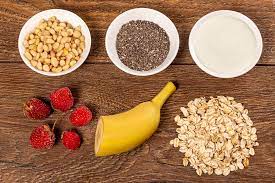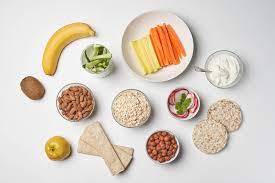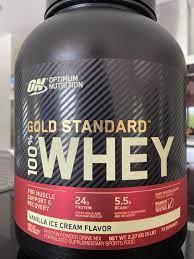Whey Protein
Hormone Replacement Therapy
Welcome
Exercise, Intermittent Fasting, and Whey Protein: How to Naturally Boost HGH Production
Physical activity is one of the best ways to improve your life. Exercise can mitigate the effects of aging and reduce your risk of experiencing countless diseases. One of the ways that exercise promotes health is that it maintains and can even restore your sensitivity to leptin and insulin.
A second reason that physical activity is so potent at maintaining health and youthfulness is that intense exercise can stimulate and increase natural Human Growth Hormone Production. HGH is one of the most essential hormones created by the human body, and we naturally produce less of it as we  age. Exercise, especially exercise, which stimulates anaerobic activity, boosts HGH production.
age. Exercise, especially exercise, which stimulates anaerobic activity, boosts HGH production.
By restoring Human Growth Hormone Production, it is possible to maintain healthier muscles and bones, staving off the frailty associated with old age.
Research and clinical practice has also shown that a strategy known as Intermittent Fasting also promotes HGH production while not hurting health. Intermittent Fasting also improves sensitivity to both leptin and insulin.
There has also been a recent study that has suggested that consuming whey protein isolate along with sucrose after a hard workout can increase HGH in combination with additional exercise. In this study, participants ran the treadmill for ninety minutes, consumed the sugar and whey, then ran for another ninety minutes.
Their HGH Secretion increased as a result of their consumption between workouts.
Working out for Health vs Working Out for Athleticism
An important thing to think about regarding diet and exercise is that you will have to adjust both aspects regarding the ultimate goals of your lifestyle routine. There are two main reasons why people work out:
To perform better athletically and remain in peak competitive shape
To live a longer and healthier life
For those working out to optimize their physical production for personal or competitive purposes, loading up with carbohydrates can be beneficial. On the other hand, if you are simply trying to look and feel better, carb-loading isn't going to be the best option for you.
If you aren't a workout machine, then carbohydrates will not benefit you, and you should aim to get a large number of your calories from lean meats and other healthy proteins.
Carb-loading can be incredibly beneficial for competitive athletes, but health risks are involved. For the most part, these risks seem to be short-term, but if you are just trying to improve your health, there is no reason to engage in exercise and nutrition routines that can hurt your overall health, even if they are effective at increasing your strength.
Why is it Important to Avoid Carbohydrates when Exercising for Health?
The concept behind loading yourself with carbohydrates is that your body has all the energy required to allow you to engage in a long and intense exercise regimen. The muscles need glycogen to function optimally, and carbohydrates are the quickest way to produce this glycogen through diet.
Carbs are for Athletes
For athletes, this can be a good thing. It optimizes their workouts, allowing them to perform better, faster, and more quickly. They also have large and strong muscles to burn off the surge of glucose entering their body.
Lastly, individuals in top-condition usually have very strong leptin and insulin receptivity, so the high levels of carbohydrates entering their body do not negatively affect their blood sugar or their hormone sensitivity.
Carbs aren't for Most People
Although carbohydrates are suitable for this class of individuals, mass consumption of carbs is not ideal for your average person. It will not benefit people who exercise simply for health reasons and only do so casually.
It also won't enormously benefit individuals that don't already have solid and large muscles or those with impairment of leptin or insulin sensitivity. Many health experts also suggest that, regarding the study mentioned above, it is better to consume concentrated whey protein rather than whey protein isolate.
In recent years and decades, there has been a misguided focus on the importance of carbohydrates. This misinformation has had a detrimental effect on countless people who work out for their own personal health.
Certain Foods Hurt More than they Help.
One thing that is vital to realize is that the foods that you consume have the capacity to both benefits or take away from the benefits of exercise. If you are exercising to live a longer and healthier life, then engaging in nutrition habits that encourage healthy changes in your physiology is essential.
The first thing to realize is that to get the most from your exercise routine, it is essential to limit carbohydrate consumption under normal circumstances unless you participate in prolonged, intense cardiovascular activity, which will burn those carbohydrate calories before they can become fat.
unless you participate in prolonged, intense cardiovascular activity, which will burn those carbohydrate calories before they can become fat.
For those who engage in this form of activity, it is essential to realize that although physical activity can improve leptin and insulin receptivity, it will not wholly counteract high levels of fructose consumption.
For individuals who only exercise for health and wellness, this means that many of the products you see advertised every day that purport to benefit you in your path to better health will have a negative impact. Unless you exercise to maximize athletic performance, energy bars and sports drinks will not benefit your quest for better health and may actively work against you.
The Problem with Fructose
Fructose is bad for the average individual interested in improving their health because this form of sugar can hinder your attempts to lose weight. After all, it actively stimulates your appetite. Fructose is unlike other nutrients we consume because insulin is not appropriately stimulated in response to fructose.
Because insulin is not adequately stimulated, ghrelin response remains high, and leptin response remains low. The body releases ghrelin to encourage you to eat, and leptin is the signal which tells you that you've had enough.
Because of this combination of signals, you stay hungrier and get hungrier more often. Unless you have incredibly high willpower, this will cause you to eat more, counteracting the gains you accumulate through physical activity. When you eat too much fructose, you simply eat too much, leading to insulin resistance because the liver simply can't keep up with your diet.
Fructose is also bad because it negatively impacts various aspects of your health. It raises your Bad LDL cholesterol and decreases your Good HDL cholesterol. It also leads to hypertension, high blood sugar, and increased triglyceride levels.
This combination of symptoms is a condition known as metabolic syndrome. Fructose also has the unfortunate capacity to increase the presence of TNF-α in the bloodstream, which has been clinically proven to decrease lean muscle mass and increase fat accumulation.
Consuming Whey Protein during Physical Activity May Increase Human Growth Hormone Production
Besides, when you sleep, you produce the highest HGH levels during intense physical activity. HGH production is stimulated when you engage in strenuous workouts which utilize fast-twitch muscle fibers.
These fibers are stimulated when you engage in anaerobic activities such as weight lifting and sprinting. This form of exercise stimulates optimal HGH production, which has been proven to help you live to be a more robust and healthier individual.
The Onset of HGH Deficiency
The problem with Human Growth Hormone is that you lose your ability to produce it sufficiently as you age. Through your late teens and twenties, you produce optimal levels of Human Growth Hormone, but around the age of thirty, you start to experience a slow and steady decline of this hormone. The decline of HGH associated with age is scientifically known as Somatopause.
The decline is insidious because it is slow and steady. Your production only drops off somewhere between one and two percent each year, but over years and decades, the effects become quite powerful. Research indicates that the decline in Human Growth Hormone Production is a powerful component of the aging process, leading to many adverse health outcomes associated with aging.
HGH Injections vs Bio-Identical HGH Hormone Replacement Therapy
Some athletes decide to utilize HGH Injections to optimize their physical performance further. Unless you have a diagnosed clinical need for HGH Hormone Replacement Therapy, we do not recommend utilizing Bio-Identical Human Growth Hormone Injections.
For patients that have healthy HGH Levels, the risks will likely outweigh the costs in the long term. However, for patients that do have a diagnosed HGH Deficiency, Human Growth Hormone may be able to improve their health.
If you are younger than thirty or just want to optimize your health, proper exercise, nutrition, and sleeping habits can help you increase your Human Growth Hormone production. If you are experiencing symptoms of HGH Deficiency impacting your ability to live a healthy life, you may wish to speak with a medical professional about your options.
Eat Smart after Physical Activity
Whether you are just starting out or continuing an exercise regimen, it is essential to understand your body's needs after exercise. What you eat and drink after your workout can significantly impact your body's reaction to exercise. In the 2-3 hours after you engage in vigorous physical activity, your body enters a rehabilitation phase when what you eat can have a powerful impact on your fitness goals.
If you are trying to stimulate the release of Human Growth Hormone, it is vital to limit sugar intake after your workout. For athletes and individuals at or near peak fitness, carbohydrates can improve recovery times, but for most individuals, Carbs will detract from your health gains.
For individuals attempting to improve their health through exercise, it is essential to consume protein after exercising. Fitness professionals recommend eating twenty-five grams of protein just after exercising within thirty minutes. Eating protein after workouts stimulates Human Growth Hormone Production.
The recommendation is to consume more carbs than protein for individuals interested in a nutrition routine that maximizes workout recovery, such as professional athletes. The best ratio appears to be four grams of carbohydrate per single gram of protein to maximize the rate of recovery after exercise. Unless you are engaged in an intense and regular workout routine, and unless you are already in good shape, this is not what you should be aiming for.
The older you get, the more critical Human Growth Hormone Stimulation becomes. If you work out doing intense cardio to burn fat and maintain muscle mass, you will shoot yourself in the foot by consuming too many carbohydrates after exercise.
Carbohydrates increase the rate at which Somatostatin is released, a negative-feedback mechanism limiting HGH production.
Whey Protein Boosts Muscle Mass
Whey protein, on the other hand, seems to be the ideal way to introduce protein to your body after exercise. This form of protein absorbs quickly through the digestive system into the bloodstream and will circulate to your muscles within ten to fifteen minutes of consumption. This gives your muscles exactly what they need, when they need it, to convert them from catabolic activity to restorative processes, which increase muscle mass.
One clinical review illuminates the benefits of Whey Protein. Researchers found that consuming between twenty and twenty-five grams of a quickly- absorbed protein can optimize the muscles' ability to repair themselves and increase in mass after exercise. They also found that for older individuals, protein sources rich in leucine, like whey, can help elderly patients optimize their protein utilization.
absorbed protein can optimize the muscles' ability to repair themselves and increase in mass after exercise. They also found that for older individuals, protein sources rich in leucine, like whey, can help elderly patients optimize their protein utilization.
Although the benefits of protein consumption are maximized just after exercise, they still benefit you as long as two days after your workout. Protein taken outside this window does not appear to produce this stimulative and beneficial effect.
Protein may also benefit you if taken before your workout. One recent study proved that eating whey protein one half-hour before engaging in resistance exercise could stimulate metabolism for an entire day afterward. Because of these results, we recommend consuming protein before and after your exercise routine to maximize protein's stimulative effects.
Increasing HGH Production with Intermittent Fasting
Intermittent fasting seems to produce the same benefits as intense physical activity regarding HGH secretion, and these two activities, when performed in combination, seem to amplify the effects and benefits provided by the two activities.
Clinical studies have shown that this form of fasting can boost Human Growth Hormone by as much as 1,300% in females and 2,000% in males!
Performing physical activity while in the process of intermittent fasting also stimulates the body to break down internal stores of glycogen and fat to release energy for the muscles. It is vitally important to note that intermittent fasting is not starving yourself.
It means timing your meals so that you go a long period without eating while still obtaining all of the nutrition that you need.
With intermittent fasting, the most extended recommended period to go without eating is 36 hours. Most plans recommend around 16 hours of fasting. However, you don't have to stick to a tight schedule to get some benefits.
You can stimulate HGH Secretion somewhat simply by putting off meals. Some people choose to skip breakfast, for example. One popular way to induce HGH Production through fasting is to choose only a particular period of the day you eat, such as between 11 am and 6 pm.
How does Intermittent Fasting Improve Longevity and Health?
There is a growing body of research that shows how fasting has a positive effect on how long animals live. Fasting induces a number of physiological mechanisms which induce longevity. One of the most critical ways fasting encourages health is because it helps to maintain Insulin Sensitivity, which wards off diabetes.
It also encourages the release of IGF-1 and bolsters the healthy rejuvenation and regeneration of various tissues within the body, slowing down the rate at which the aging process occurs. Intermittent fasting has also been shown to reduce the risk of numerous diseases.
Although Fasting and Exercise appear to produce synergistic benefits, there are a number of other biological reasons why fasting is beneficial even when performed outside of physical activity:
Reduces Triglyceride Levels
Stimulates HGH Secretion
Reduces the Influence of Hunger-Stimulating Ghrelin
Decreases Insulin Resistance
Alleviates Inflammation and the Impact of Free Radicals
Improving Your Health and Your HGH Production
It doesn't matter if you are exercising for your health or to increase your physical performance; high-intensity physical activity should be a vital aspect of your workout routine. Every little bit helps, even if you just engage in one workout session per week, but we suggest exercising at least three times per week to optimize the benefits you receive.
We also recommend combining intermittent fasting with your periods of intense physical exercise to stimulate your HGH Production further and improve  your gains from exercise and diet.
your gains from exercise and diet.
If you are in excellent condition and trying to get yourself into professional-quality shape, carbohydrate consumption before meals can significantly increase your energy levels and the speed you recover after exercise. Still, for the vast majority of individuals, it is essential to limit carbohydrate consumption, especially after exercise.
This means that you should limit your consumption of both grains and sugars to maximize your exercise outcomes and overall health, wellness, and longevity. The most important thing to remember is to never eat or drink fructose from any source within two hours of a high-impact workout because this will release signals to your brain to limit Human Growth Hormone Production.
In these cases, carb-loading will have the exact opposite effect that you want, preventing you from seeing the optimal gains of your exercise activities.
- What Is Male Hypogonadism? [Last Updated On: December 22nd, 2024] [Originally Added On: July 18th, 2020]
- What Is Low-t And How Can It Effect My Life? [Last Updated On: September 20th, 2024] [Originally Added On: July 22nd, 2020]
- Identification Of Late Onset Hypogonadism In Middle Aged And Elderly Men [Last Updated On: October 21st, 2024] [Originally Added On: July 24th, 2020]
- Importance Of Hormone Balance For A Man's Health [Last Updated On: September 18th, 2024] [Originally Added On: July 25th, 2020]
- Subcutaneous Injection Procedures [Last Updated On: September 17th, 2024] [Originally Added On: July 30th, 2020]
- Genetics And Gene Therapy. What Are Genes? [Last Updated On: September 15th, 2024] [Originally Added On: August 2nd, 2020]
- Hormone Replacement Therapy Blood Testing [Last Updated On: September 14th, 2024] [Originally Added On: August 7th, 2020]
- Gh-rh [Last Updated On: September 6th, 2024] [Originally Added On: August 12th, 2020]
- How Does Growth Hormone Testing Work? [Last Updated On: February 13th, 2025] [Originally Added On: August 15th, 2020]
- Important Figures In Hormone Replacement Therapy Research [Last Updated On: August 16th, 2024] [Originally Added On: August 16th, 2020]
- Certified Age-management And Longevity Professionals [Last Updated On: February 17th, 2025] [Originally Added On: August 28th, 2020]
- Bio-identical Genotropin Hormone Replacement Therapy [Last Updated On: August 6th, 2024] [Originally Added On: September 4th, 2020]
- HGH Injections [Last Updated On: February 28th, 2023] [Originally Added On: March 7th, 2021]
- Growth Hormone Injection Treatment For Women [Last Updated On: February 17th, 2025] [Originally Added On: March 8th, 2021]
- Buy Growth Hormone Injection Treatment For Men [Last Updated On: February 19th, 2025] [Originally Added On: March 9th, 2021]
- The Conscious Evolution Institute For Quality Hormone Replacement Therapy [Last Updated On: October 29th, 2024] [Originally Added On: March 10th, 2021]
- 25 Foods That Can Improve Your Health [Last Updated On: October 28th, 2024] [Originally Added On: March 11th, 2021]
- Change Your Life With A Conscious Evolution Lifestyle [Last Updated On: February 19th, 2025] [Originally Added On: March 12th, 2021]
- Understanding The Various Causes Of Human Obesity [Last Updated On: February 19th, 2025] [Originally Added On: March 13th, 2021]
- Male Hormone Replacement Therapy Blood Panel [Last Updated On: February 18th, 2025] [Originally Added On: March 15th, 2021]
- Getting Started With Hormone Replacement Therapy [Last Updated On: February 19th, 2025] [Originally Added On: March 17th, 2021]
- Buy Female Blood Diagnostics [Last Updated On: October 25th, 2024] [Originally Added On: March 18th, 2021]
- Low Testosterone and other Sex Drive Killers that Cause Low Libido in Men [Last Updated On: February 14th, 2025] [Originally Added On: May 1st, 2022]
- The effects of Human Growth Hormone (HGH) on the skin [Last Updated On: February 18th, 2025] [Originally Added On: May 8th, 2022]
- Testicle Tanning – See Through the Hype [Last Updated On: February 19th, 2025] [Originally Added On: May 30th, 2022]
- Lean Muscle Mass Critically Important to Healthy Aging [Last Updated On: February 18th, 2025] [Originally Added On: June 28th, 2022]
- Can Vitamin B6 Help Relieve Anxiety? [Last Updated On: February 14th, 2025] [Originally Added On: August 2nd, 2022]
- A Chemical Found in Common Household Items May Disrupt a Hormone Necessary for Healthy Pregnancy [Last Updated On: March 25th, 2025] [Originally Added On: August 2nd, 2022]
- Matching Libidos Ensure Healthy Relationships [Last Updated On: March 5th, 2025] [Originally Added On: December 11th, 2022]
- How Fluctuating Libidos Affect Aging Men and Women [Last Updated On: February 19th, 2025] [Originally Added On: January 10th, 2023]
- Adopting a Conscious Evolution Lifestyle for Improved Health and Longevity [Last Updated On: February 9th, 2025] [Originally Added On: February 9th, 2025]
- Male Hormone Replacement Therapy: Diagnostic Blood Test Regime [Last Updated On: February 14th, 2025] [Originally Added On: February 13th, 2025]
- Unleash the Power of Vitamin B6: The Natural Antidote to Anxiety! [Last Updated On: February 14th, 2025] [Originally Added On: February 14th, 2025]
- The Impact of Human Growth Hormone Deficiency in Men [Last Updated On: February 16th, 2025] [Originally Added On: February 15th, 2025]
- Maintaining Lean Muscle Mass: A Crucial Facet of Healthy Aging [Last Updated On: February 17th, 2025] [Originally Added On: February 15th, 2025]
- Introduction to Testicle Tanning [Last Updated On: February 11th, 2025] [Originally Added On: February 16th, 2025]
- Introduction to Hormone Replacement Therapy [Last Updated On: February 17th, 2025] [Originally Added On: February 17th, 2025]
- Importance of Matching Libidos for Healthy Relationships [Last Updated On: February 19th, 2025] [Originally Added On: February 19th, 2025]
Word Count: 2575







